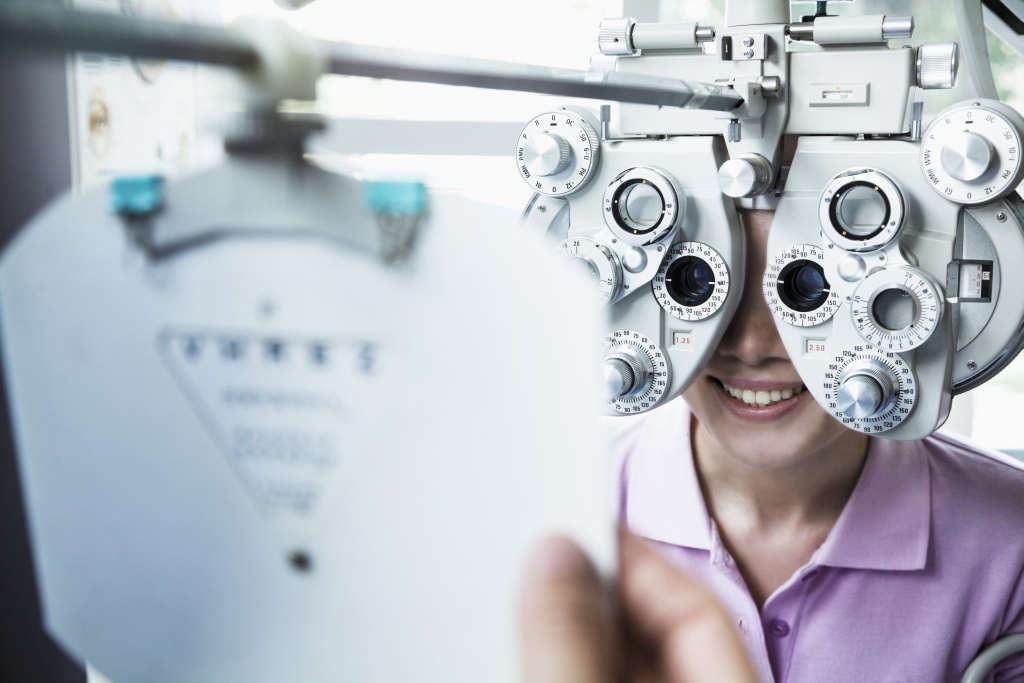Industry Overview: Optometry

Due to its characteristic complexity, the vision care field can be confusing for the uninitiated, so it’s a good idea to gain some familiarity prior to seeking professional services. In this article, we cover some of the basics, from key industry terms to frequently asked questions.
Optometrist, Ophthalmologist, Optician: Differentiating Designations
Optometrists are doctors of optometry who can examine eyes for diseases and vision problems, fit people with glasses and contact lenses, prescribe medications, and provide pre- and post-operative eye surgery care.
Ophthalmologists treat eye conditions and diseases; prescribe medication, eyeglasses and contact lenses; and perform eye exams and surgeries.
Opticians are trained and licensed to fit patients with eyeglasses, sunglasses and contact lenses. They aren’t doctors, but they can use prescriptions written by optometrists or ophthalmologists to help patients enhance their vision.
Four Ways to Preventively Care for Your Eyes
- Go for annual eye exams. Annual eye exams are the most important preventive measure you can take to protect your vision. This is because examinations enable early detection of vision problems, eye diseases and other health-related problems before they become full-blown. Since afflictions like glaucoma, macular degeneration and cataracts seldom have noticeable early symptoms, without preventive exams, they can be allowed to progress unchecked and cause permanent damage.
- Wear protective eyewear. Safety glasses and other forms of protective eyewear help prevent potential injuries while you’re engaged in work or activities that pose a risk, such as wood or metal work and sports like basketball and football. Another important form of protective eyewear is sunglasses, which guard your eyes from harmful UV rays—a major contributor to the development of cataracts, retinal disease and macular degeneration.
- Consider the impact of diet and lifestyle. More and more, eye care professionals are finding a connection between general health and eye health. Additionally, since the risk for eye problems increases with age, it’s important to supplement with vitamins and nutrients that support healthy vision (Vitamin A and beta-carotene, Omega-3 essential fatty acids).
- Pay attention to new developments. If you notice peripheral flashes of light or new eye floaters (gray or black squiggly lines in your field of vision), see an eye care professional immediately. Although floaters are usually a natural occurrence, in some instances, an influx of new ones may be a precursor to retinal detachment—an emergency situation that can result in substantial vision damage.
Frequently Asked Questions
Q: Is an eye screening equal to an eye examination?
A: No. Eye screenings provided by school nurses, general care doctors, pediatricians and other health care professionals may be helpful as general eyesight checks, but these individuals aren’t trained to identify eye diseases and vision problems.
Q: When should children start having eye exams?
A: Children can have their first vision exams at six months of age, and they should begin having annual eye examinations at age three.
Q: How often should I replace my contact lenses?
A: Your optometrist will be able to recommend a proper replacement schedule for you. Depending on the types of lenses you wear, your replacement schedule may vary from daily, weekly or biweekly to monthly, quarterly or even annually.
Q: Why should I choose a Diamond Certified vision care professional?
A: Diamond Certified helps you choose a vision care professional with confidence by offering a list of practices that have been rated Highest in Quality and Helpful Expertise by the country’s most in-depth rating process. Furthermore, every Diamond Certified company is continuously monitored to ensure they maintain a high rate of customer satisfaction, and each transaction is backed by the Diamond Certified Performance Guarantee.
Use Diamond Certified Resource to find top rated companies.
Local, Top Rated Diamond Certified Practices Related to Your Topic
San Mateo County Opticians
Alameda County Opticians
Sonoma County Opticians
Napa County Opticians
San Francisco Opticians
Related Articles
The Essential Guide to Eye Care Services
Get Expert Advice From Owners of Top Rated Local Companies
Become a Diamond Certified Preferred Member (Always Free)